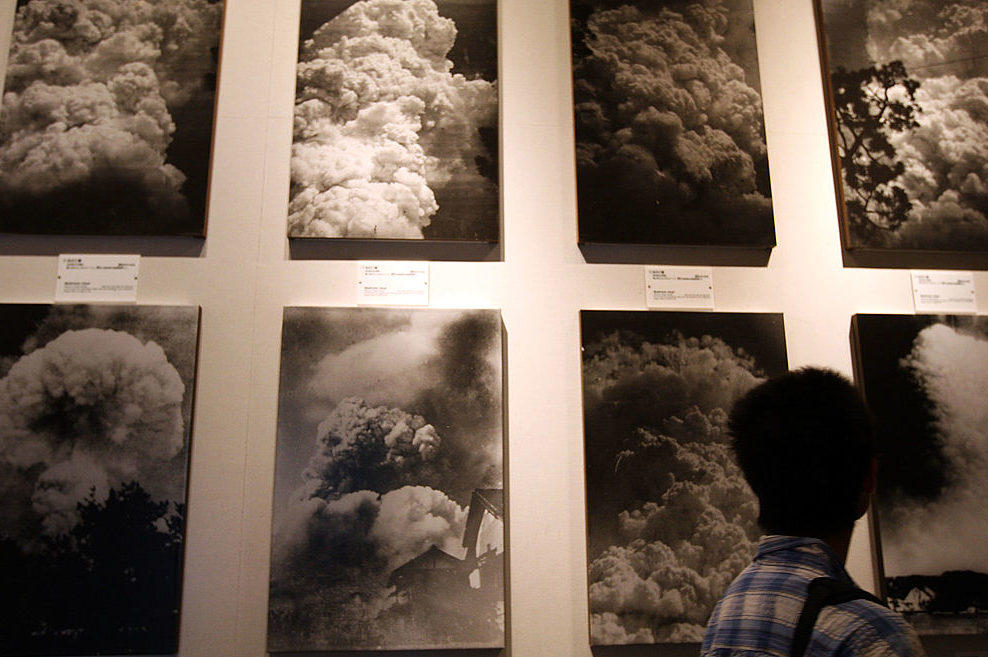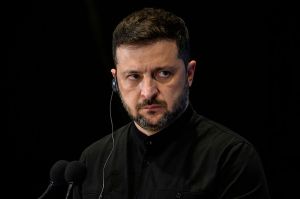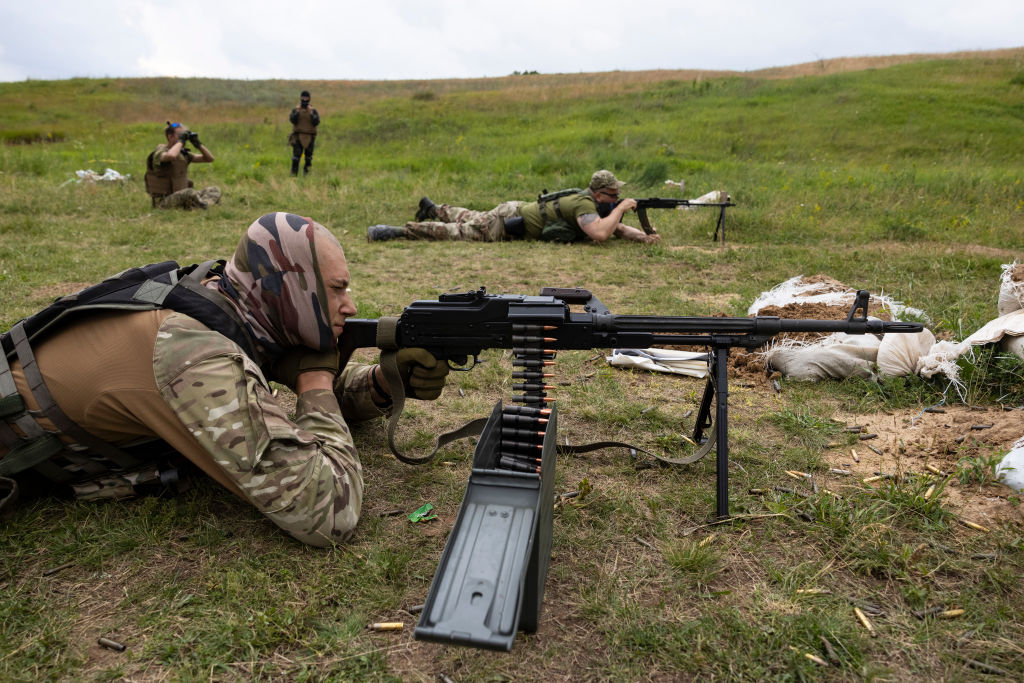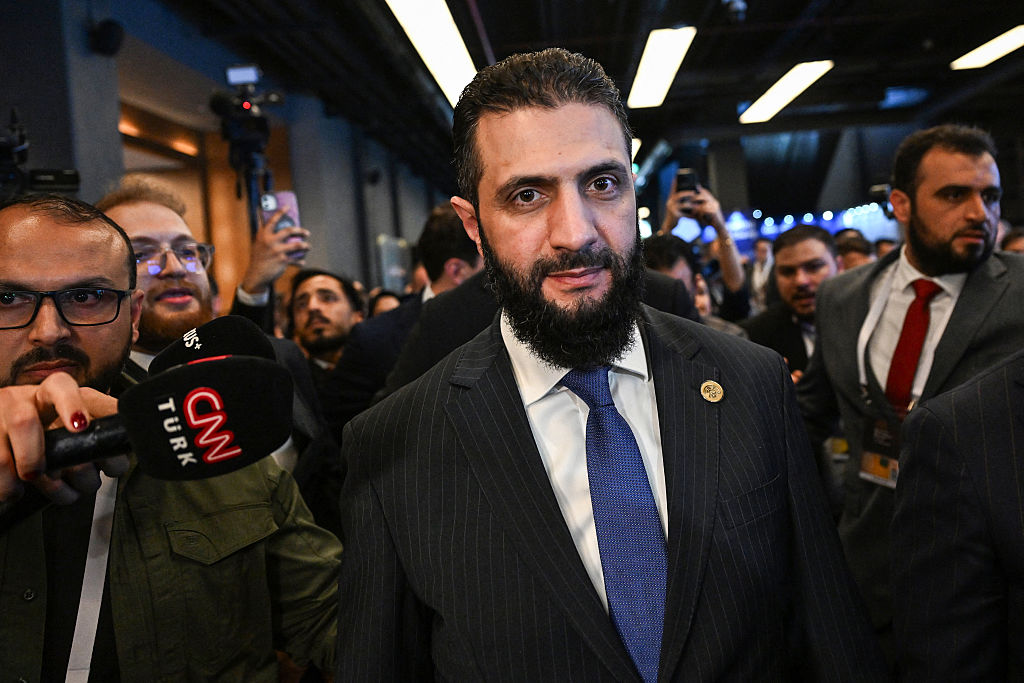Some people are always telling you that the world is soon to end. In the old days many of them would wear sandwich boards describing near-term doom, and not wash. Now, their cousins in the environmental movement glue themselves to oil refineries and don’t shave. In each case, they drip with urgency. The oceans will boil, the land will burn. Your children will fry. Or, alternatively, the Lord will return and take only the righteous to their reward.
Be afraid and confess, before it is too late.
Public life has these people, too, for this tendency is quite universal. Financial doom-mongering is a profitable little side-line for some economists. The great crash they predict is always upcoming. And you had better pay for their course or watch their YouTube videos if want to know how to get ahead when the hammer falls.
Even in the rarefied field of international relations, the same tendency appears — more often than not smuggled in through journalism. The fact that most people find foreign affairs complicated and dull has no bearing. If anything, it helps. If you can circumvent precedent and history, and get right to mortal peril, so much the better.
I have been keeping notes for less than a decade, but even in that time, a pattern is clear. Certain people imagine a third world war, perhaps a nuclear one, breaking out at almost any time. They’re always wrong, of course, humiliating themselves unnecessarily at each try. But bravely, and with great consistency, they persist.
Which instances cause this sort of panic? Any diplomatic dispute between the United States and Russia, for one. That makes a little sense: two big nuclear powers could, at least theoretically, do real damage to themselves and others. The fact that this has never happened, many argue, does not mean it cannot. And therefore it will happen, right now, caused by this very crisis — every time.
But there are others. Nuclear war, or global conflict, was predicted after Donald Trump’s assassination of the Iranian Islamic Revolutionary Guard Corps general Qassem Soleimani in 2020; after Britain, France and the United States made a small, symbolic attack on Syrian president Bashar al-Assad’s chemical weapons program; and after Turkey’s accidental shooting down of a Russian fighter jet in 2015.
Vaguely, with more handwaving, a third world war is spotted every time North Korea is briefly front page news.
There is no need to explain why Russia would destroy the world to protect Assad, or how North Korea and Iran — belligerent local irritants but not world-spanning great powers — would wreath the world in fire. But that’s not exactly the point. I’m told many otherwise clueless young American men spent January 2020 worriedly Googling whether they were going to be called up to fight in Iran. I imagine that was the point of all that coverage.
This strange compulsion meets both psychological and political needs. The psychological reasons are the same reasons why apocalyptic disaster movies have done so well this century, and why true crime podcasts do such a roaring trade: it’s the thrill of danger, without its reality. It means some people exaggerate the murder rates, and the direction those statistics are travelling over decades. Predicting disaster can bring attention and payment — whether or not disaster transpires.
And for some, so depressed by the state of the world, the prospect of a cleansing fire has its own attractions: Malcolm Muggeridge, a congenital pessimist, wrote of his strange joy in World War Two at seeing sinful London bombed and burning.
The political reasons are tawdrier. The Russian state throws nuclear threats around rather more profligately than it has thrown around nuclear weapons. It threatens “nuclear escalation” for some passing slight, almost always unspecified, almost every week, and has done for years.
Commentators and activists who find themselves temporarily or permanently aligned with the Kremlin’s perspective heed these threats and trumpet them every time, as if they were serious.
Being constantly wrong has no bearing on excitable predictions like this, or on those who derive meaning from making them. A number of “anti-war” organizations supplement their defense of rogue states like Iran, dictators like Assad and revisionist powers like Russia by the threat of a nuclear third world war.
The imagined threat is so great that one need not try to stop, or even stoop to criticize, smaller wars — like the one launched by Vladimir Putin in Ukraine, or fought by Assad against the Syrian people. One can protest against, and believe one has averted, the cataclysmic surprisingly often without losing face. If anything, it makes these people stand taller. They alone are holding back the end of the species, in their own minds.
But each new excitement also brings problems. Living in a constant state of near-hysteria is psychologically taxing. When Russia invaded Ukraine this year, new impetus was given to those who predict global catastrophe.
Anyone who criticized the Russian invasion, or sought the defeat of Russian forces, or mused about what could be done to prevent Putin’s next invasion, was an unwitting agent of global destruction — according to newsletter writers, anti-war activists, and YouTubers. The liberals who sympathized with Ukraine? They were the cheering section of a nuclear holocaust. Ukrainian refugees themselves? With a heavy heart, some Substackers decided, they too were the emissaries of the third world war. The fools.
It is sometimes remarked that, for derelicts who insist that the end is nigh, the sangfroid of the public, who go about their daily business entirely untroubled by these portents, must be baffling. The same is true of the prophets of world war and nuclear annihilation.
How many times do people need to be told? This time it’s really going to happen. I mean it. Why oh why won’t they heed my warnings? I promise you I’m right.

























